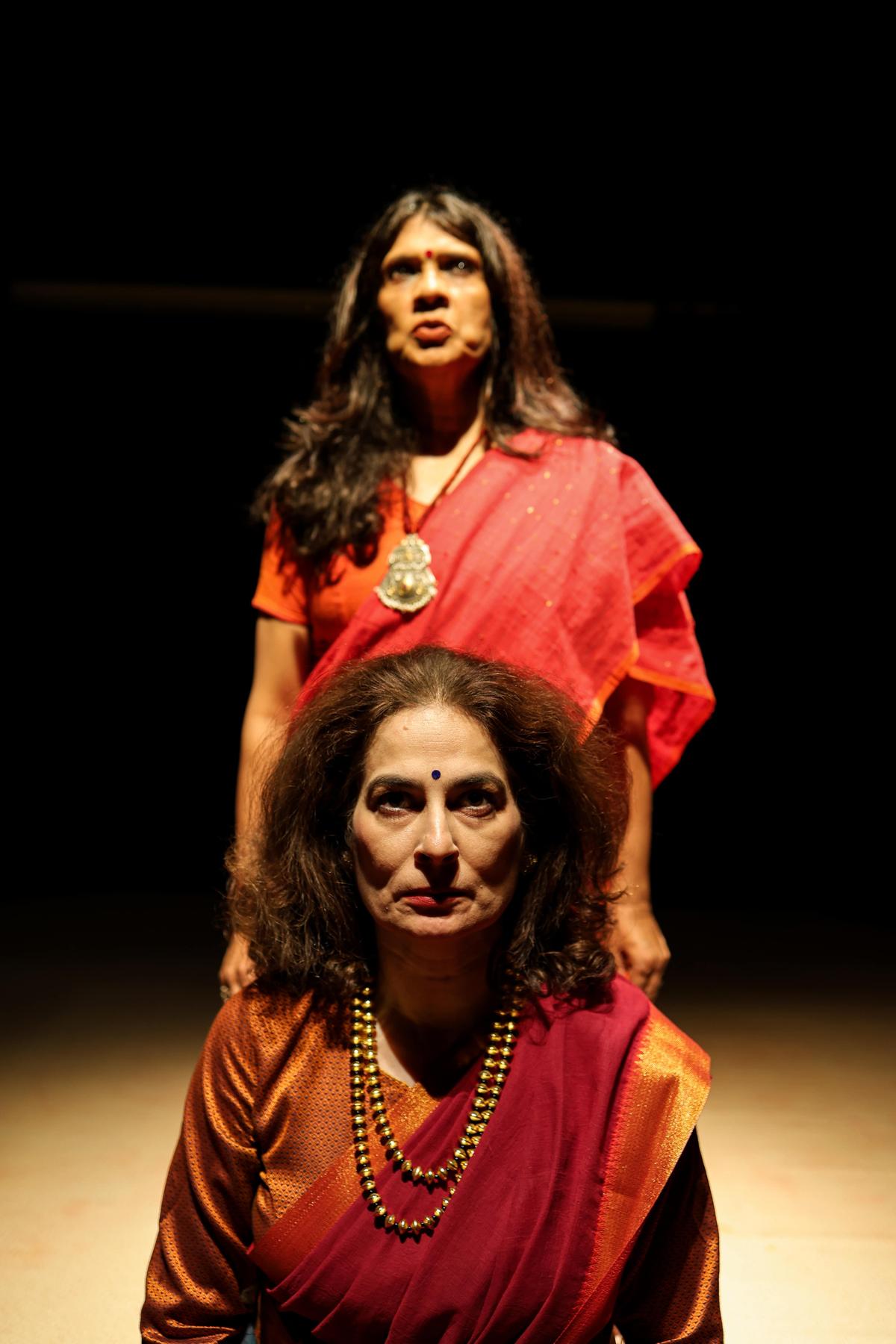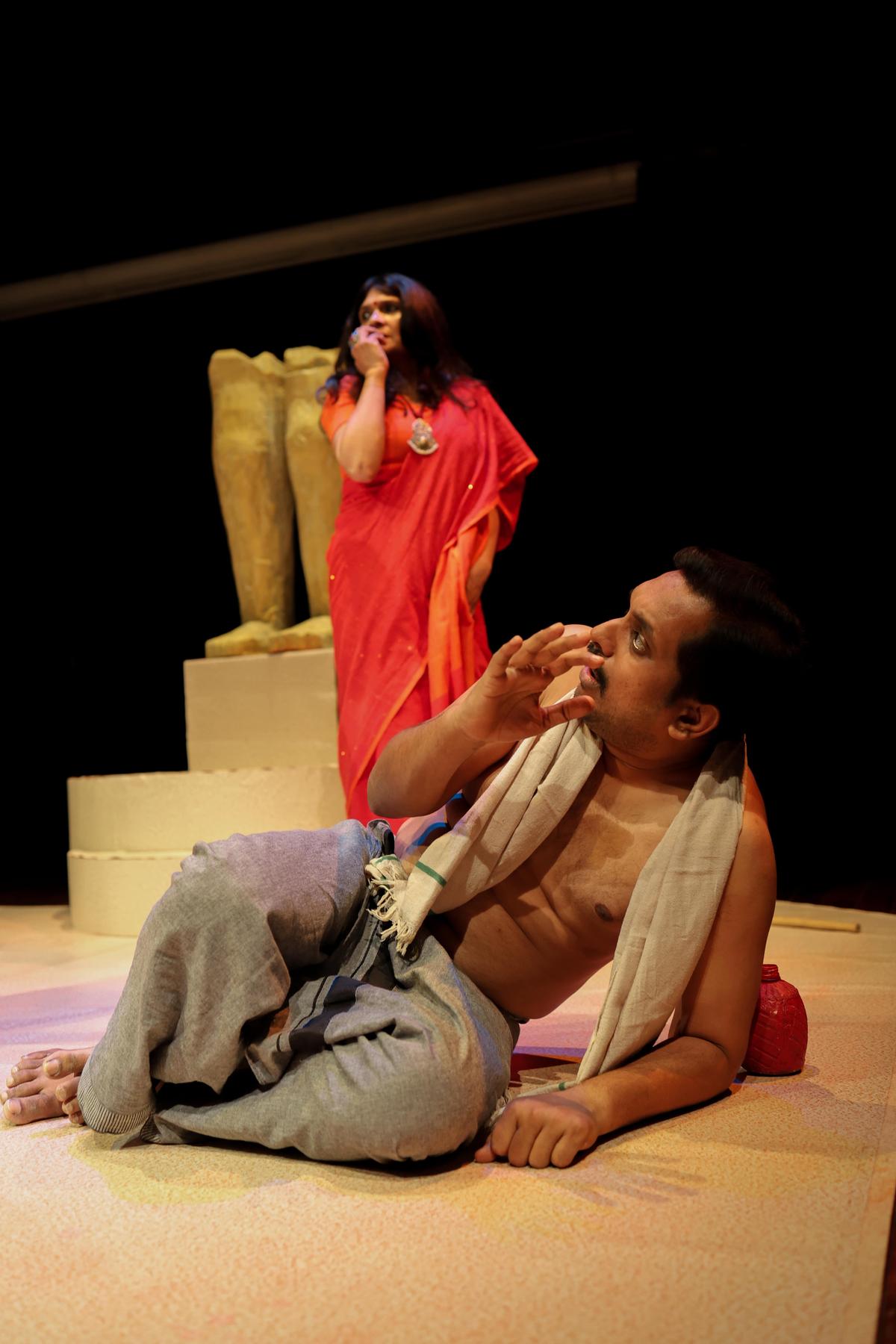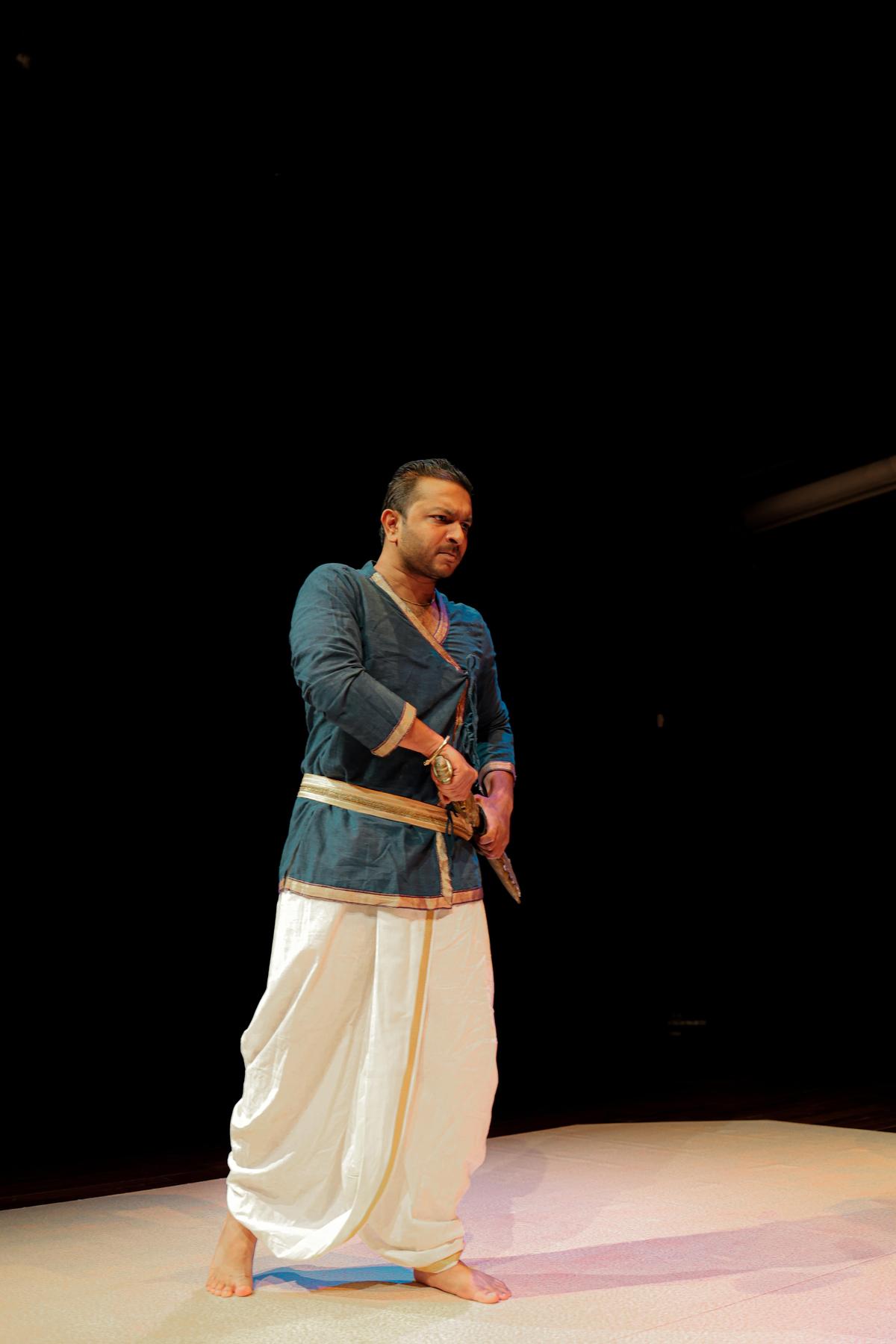
A still from ‘Bali: The Sacrifice’
| Photo Credit: Special Arrangement
In Girish Karnad’s Bali: The Sacrifice (the English adaptation of his 1980 Kannada play Hittina Hunja), a king is torn between his love for his Jain queen, who refuses to harm life, and his duty to his mother, who demands sacrificial rites. This gripping drama explores the complexities of faith, morality, and the power of love.
The 90-minute English play’s exploration of violence and conflicting ideologies resonated with Arundhati Raja, the director. As a tribute to the legendary Karnad, she reimagined the play for her theatre company, Jagriti Theatre, in 2021.
“The play is based, as Girish Karnad’s plays are, on an ancient epic, which he then wields into a skilled, dramatic script. This drew me to Bali and two other Girish Karnad plays I directed, The Dreams of Tipu Sultan and Yayati,” says Arundhati, “I have always strived, however, to highlight the underlying issues he presents, through his dialogue and plot rather than through a traditional approach in design and performance.”
Arundhati delves into the complexities of conflict beyond mere religious differences. She perceives the conflict between the king’s mother and the queen as a catalyst rooted in the patriarchal expectation of a male heir. This expectation, she argues, is a pervasive form of violence, often overlooked in favour of physical manifestations.

A still from ‘Bali: The Sacrifice’
| Photo Credit:
Special Arrangement
“The question here for me is: What constitutes violence? Is it violence only if there is bloodshed or physical abuse? Is the constant pressure on a woman to produce an heir a form of violence? Or on a man to discard an infertile wife for another who, hopefully, is fertile? Or the demeaning of a lowly mahout, loved for his voice but taunted for his looks?” she asks.
Arundhati also acknowledges the rich literary heritage that inspired Karnad’s play. Karnad himself noted that the play’s origins can be traced back to a thirteenth-century Kannada epic, Yashodhara Charite, and even further to similar stories from the first century. This historical context underscores the enduring power of legends and multi-faceted characters in Indian culture.
The play’s connection to these ancient narratives highlights how timeless themes of love, loss, and power continue to resonate with audiences today. “I make no special attempt to make anything relevant. It is all in the script as is. The saying ‘Theatre is a mirror to the audience’ holds true in a Karnad play,” says Arundhati.
She faced challenges in directing Bali due to the absence of Karnad. His guidance had been invaluable in The Dreams of Tipu Sultan and Yayati. “He was always available, a phone call away. He would come in to watch a rehearsal and spend the day with the cast,” she recalls. However, once the script captured her imagination, she could immerse herself in the world of Bali.
The play serves as a poignant commentary on the enduring nature of violence. Despite the passage of time, human beings continue to grapple with various forms of violence. Through its exploration of power dynamics, societal pressures, and the destructive consequences of conflict, it offers a reflection on the human condition.
When asked what the audience can take away from a play conceived two decades ago by Karnad, she replies, “Time passes, but human beings do not change. We continue to deal with violence in its multi-faceted form. Can we really do something about it? Shouldn’t we try harder? These are questions to be mulled over. I don’t believe a play should preach.”
Bali: The Sacrifice will be staged five times between August 30 to September 1 at Jagriti Theatre, Whitefield. For ages 16 and above. Tickets on BookMyShow.

A still from ‘Bali: The Sacrifice’
| Photo Credit:
Special Arrangement

A still from ‘Bali: The Sacrifice’
| Photo Credit:
Special Arrangement




